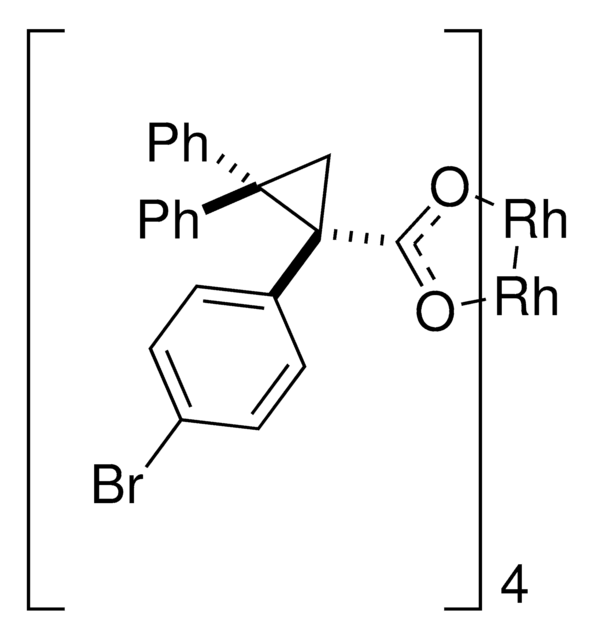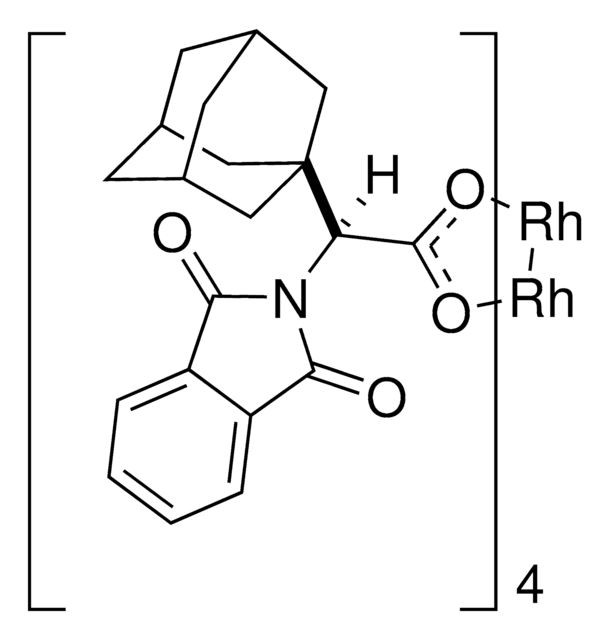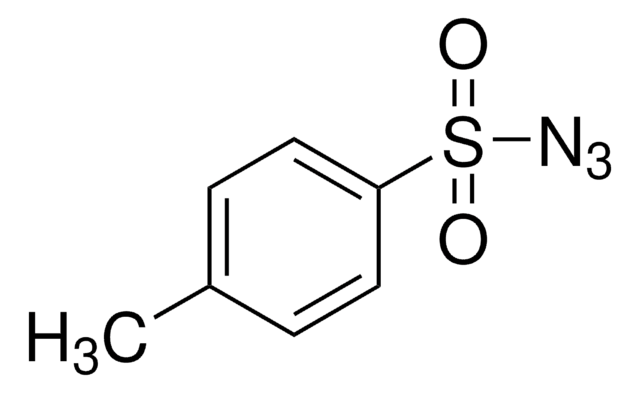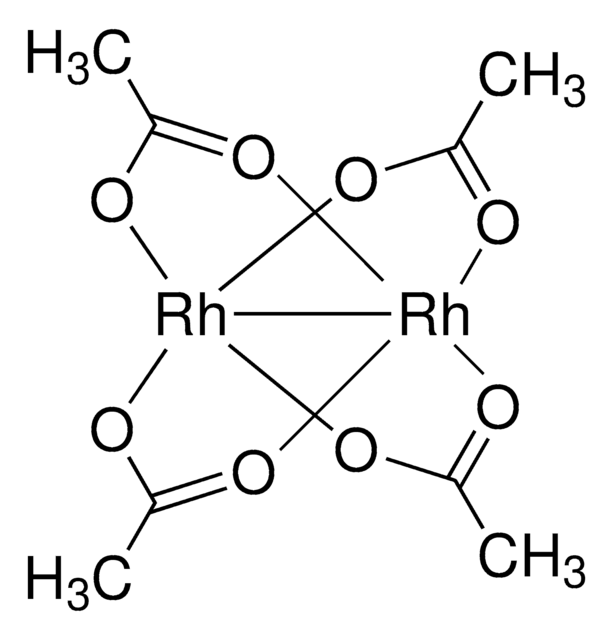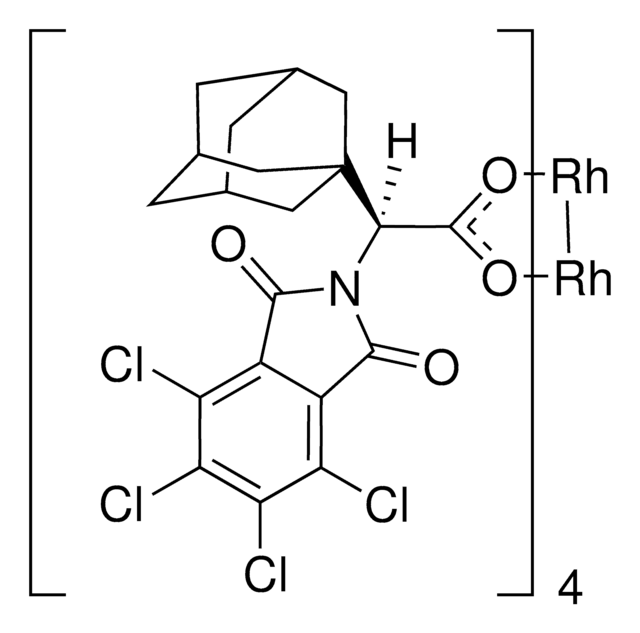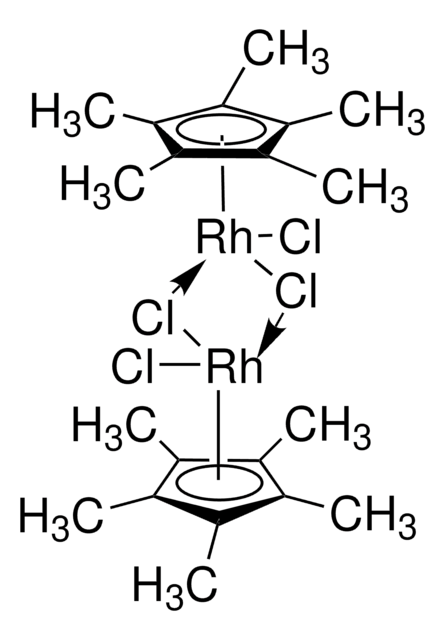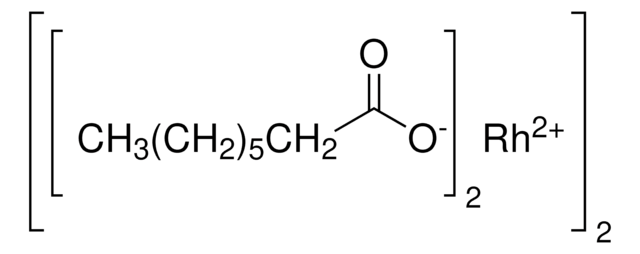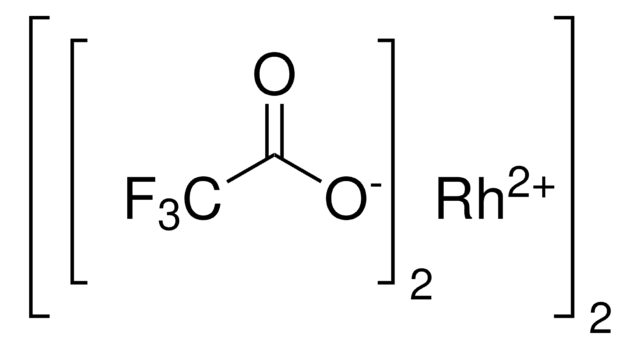905348
Rh2(R-p-Ph-TPCP)4
Synonym(s):
Dirhodium tetrakis((S,R)-1-(4-phenyl(phenyl))-2,2-diphenylcyclopropanecarboxylate), Dirhodium tetrakis[(R)-1-(4-phenyl(phenyl))-2,2- diphenylcyclopropane carboxylate], Tetrakis[(R)-1-(4-phenyl(phenyl))-2,2- diphenylcyclopropane carboxylato]dirhodium(II)
About This Item
Recommended Products
form
powder
Related Categories
Application
Other Notes
Role of Sterically Demanding Chiral Dirhodium Catalysts in Site-Selective C-H Functionalization of Activated Primary C-H Bonds
Rhodium(II)-Catalyzed C-H Functionalization of Electron-Deficient Methyl Groups
Related product
Storage Class
11 - Combustible Solids
wgk_germany
WGK 3
flash_point_f
Not applicable
flash_point_c
Not applicable
Choose from one of the most recent versions:
Certificates of Analysis (COA)
Don't see the Right Version?
If you require a particular version, you can look up a specific certificate by the Lot or Batch number.
Already Own This Product?
Find documentation for the products that you have recently purchased in the Document Library.
Our team of scientists has experience in all areas of research including Life Science, Material Science, Chemical Synthesis, Chromatography, Analytical and many others.
Contact Technical Service![Bis[rhodium(α,α,α′,α′-tetramethyl-1,3-benzenedipropionic acid)] 95%](/deepweb/assets/sigmaaldrich/product/structures/102/178/d1171a49-0358-406b-8b32-04324dbf9c02/640/d1171a49-0358-406b-8b32-04324dbf9c02.png)
